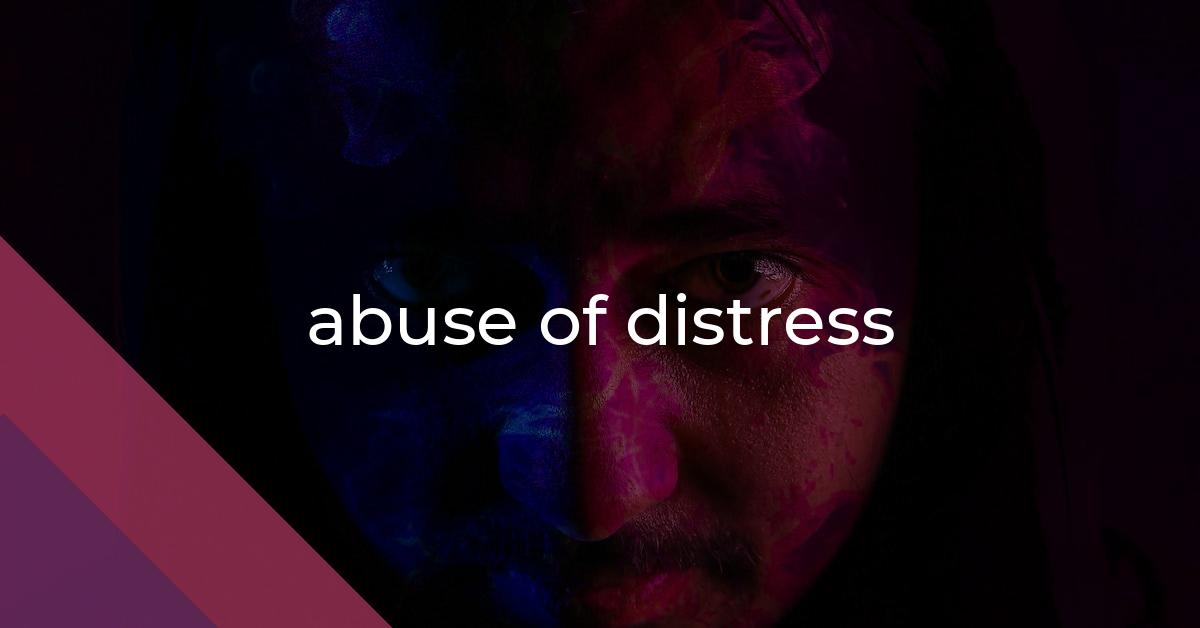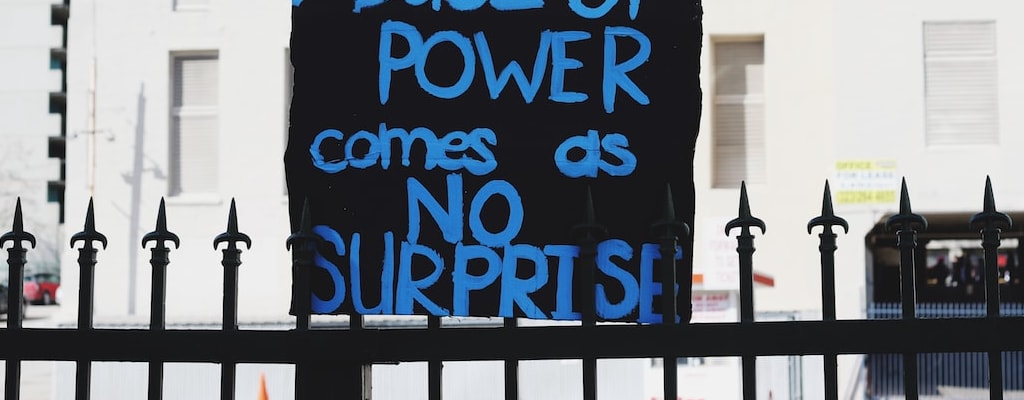abuse of distress: Idiom Meaning and Origin
What does ‘abuse of distress’ mean?
The idiom "abuse of distress" refers to mistreating or taking advantage of someone who is in a vulnerable or desperate situation.

Idiom Explorer
The idiom "strike someone when they are down" means to take advantage of someone's vulnerability or weakness to further harm them or make their situation worse.
The idiom "kick someone when they are down" means to take advantage of someone's vulnerable state or exploit their weakness for personal gain or to further harm them.
The idiom "in a state" means to be in a state of distress, anxiety or confusion.
An idiom used to describe someone who is in an emotional or mental state of extreme agitation, distress, or confusion.
The idiom "hurt someone's feelings" means to cause emotional pain or upset to someone by saying or doing something that offends or upsets them.
The idiom "hit someone when they are down" means to take advantage of or attack someone when they are already in a vulnerable or weakened state.
The idiom "hard done by" refers to feeling unfairly treated or disadvantaged in a situation. It implies a sense of experiencing hardship or being poorly treated in comparison to others.
The idiom "guilt trip" refers to a situation where someone intentionally manipulates another person into feeling guilty or remorseful in order to control their actions or behaviors.
The idiom "go begging" means to be unwanted, rejected, or not valued by others.
Exploiting Vulnerability
The idiom "abuse of distress" suggests taking unfair advantage of someone's suffering or vulnerability for personal gain. It is commonly used to describe manipulative behaviors or the unethical exploitation of vulnerable individuals. The origin of this idiom is elusive, but similar expressions can be found in ancient texts, highlighting its enduring presence throughout history.
The word "abuse" in this idiom conveys a sense of wrongdoing or immoral behavior. It implies an intentional act of taking advantage, lending a critical tone to the expression. The inclusion of the word "distress" adds emotional depth, emphasizing the vulnerability and suffering experienced by the victim.
"Abuse of distress" finds its place in both formal and informal contexts, enriching the English language with its resonance and versatility. It serves as a powerful metaphor, allowing individuals to articulate instances of exploitation and manipulation with precision.
Exploring the nuances of this idiom sheds light on human nature, morality, and the complexities of interpersonal dynamics. It reminds us that empathy and compassion are crucial in combating the abuse of power and the mistreatment of vulnerable individuals.
The impact of the idiom "abuse of distress" goes beyond its linguistic function. It serves as a tool for social critique and a call to action against injustice.
Now, let's explore how some other idioms relate to the concept of abuse of distress.
The idiom "in a right state" can be related to abuse of distress as it indicates being in a state of distress or chaos. If someone is "in a right state" due to a stressful situation, they can be more susceptible to exploitation or unethical behavior.
The idiom "fish in troubled waters" can also be connected to abuse of distress as it implies taking advantage of a difficult or chaotic situation. Just as fish in troubled waters are easier to catch, vulnerable individuals experiencing distress may become targets for manipulation or exploitation.
for chrissake, another idiom related to abuse of distress, expresses frustration or exasperation. When someone is in a state of distress, their vulnerability may be taken advantage of, leading to frustration and exasperation.
The expression "fucked over" is another idiom linked to abuse of distress. It suggests being betrayed, deceived, or taken advantage of in a distressing situation. It highlights the vulnerability and exploitation that can occur when someone is in a state of distress.
The idiom "abuse of distress" captures the exploitation and manipulation of vulnerable individuals for personal gain. Its historical significance, emotional resonance, and enduring relevance make it a powerful expression in the English language. Through its usage, we are reminded of the importance of empathy and compassion in addressing issues of abuse and exploitation. The related idioms "in a right state," "fish in troubled waters," "for chrissake," and "fucked over" further illustrate the vulnerability and potential for manipulation within the context of distress.
Example usage
Examples of how the idiom abuse of distress can be used in a sentence:
1. Despite knowing that the couple was going through a difficult time, their friends decided to take advantage of their distress and pressure them into investing in a shady business scheme.
2. The politician was accused of an abuse of distress when he exploited the recent natural disaster to gain sympathy from voters and secure reelection.
3. The company's management was found guilty of an abuse of distress when they used the threat of layoffs to force employees to work longer hours without proper compensation.
More "Misfortune" idioms



